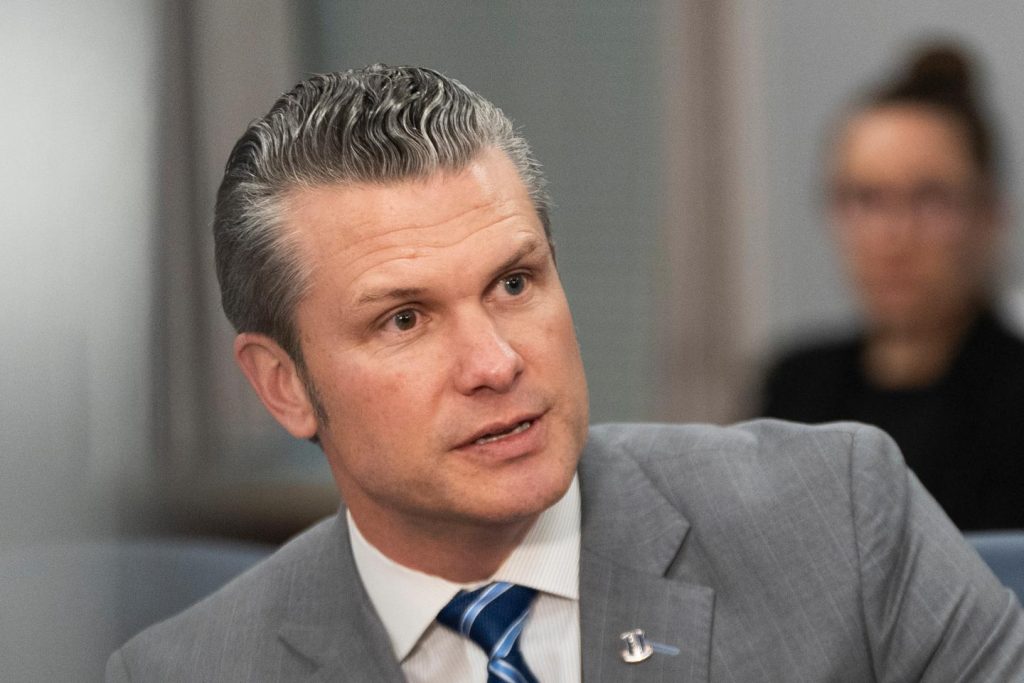US Defense Minister Suspends Transgender Military Recruitment and Gender Transition Services
Introduction
On February 10, 2025, a memo released by the United States Department of Defense revealed that Defense Minister Pete Hegseth had decided to suspend the recruitment of transgender individuals into the military. Additionally, the memo announced the suspension of all non-essential medical procedures related to gender transitions for current military personnel. This decision aligns with President Donald Trump’s broader efforts to roll back policies supporting LGBTQ+ individuals, particularly transgender people, in the military. The move has sparked significant controversy, as it reverses the inclusive policies implemented by the previous administration under President Joe Biden.
The Memo and Its Implications
The memo, made public as part of ongoing legal proceedings aimed at challenging the enforcement of Trump’s decree, states that "effective immediately, any new recruitment of transgender individuals is suspended." It also mandates that "all non-programmed medical procedures, scheduled or contemplated to facilitate or carry out a gender transition, are suspended for military personnel." This decision effectively halts the enrollment of transgender individuals into the military and prevents current service members from accessing necessary medical care related to their gender transition. The suspension has been met with outrage from LGBTQ+ advocacy groups, who argue that it discriminates against transgender individuals and undermines their ability to serve their country.
Trump’s Stance on Transgender Military Service
President Donald Trump has been a vocal opponent of allowing transgender individuals to serve openly in the military. On January 20, 2025, the day of his inauguration, Trump signed an executive order aimed at "eradicating" what he referred to as "transgender ideology" from the U.S. military. The decree asserts that the U.S. government will no longer recognize the concept of gender identity beyond the male and female categories assigned at birth. Trump’s administration claims that this policy is necessary to maintain military readiness and cohesion, though critics argue that there is no evidence to support this claim.
A Reversal of Biden’s Inclusive Policies
During his presidency, Joe Biden had reversed Trump’s previous ban on transgender military service, which was enacted during Trump’s first term (2017-2021). Under Biden’s policy, transgender individuals were allowed to enlist and serve openly in the military, provided they met the necessary medical and readiness standards. Biden’s administration emphasized that "all Americans who are qualified to serve should be able to do so," regardless of their gender identity. Estimates suggest that there are approximately 15,000 transgender military personnel out of a total of about two million service members.
Legal Challenges and Broader Implications
The memo released by the Department of Defense is part of a larger legal battle over Trump’s executive order. Advocacy groups and legal experts have argued that the ban on transgender military service is unconstitutional and discriminatory. They point out that the policy not only bars transgender individuals from enlisting but also denies current service members access to essential medical care, which could have serious health consequences. The suspension of gender transition services has been particularly criticized, as it leaves many service members in a state of medical limbo.
Conclusion
The decision by the U.S. Department of Defense to suspend transgender military recruitment and gender transition services represents a significant shift in the nation’s approach to LGBTQ+ rights. While supporters of the policy argue that it is necessary to maintain military readiness, critics contend that it is a politically motivated attack on transgender individuals. As legal challenges to the policy continue, the debate over transgender military service remains a contentious issue in American society. For the thousands of transgender service members who have dedicated their lives to serving their country, the future remains uncertain.












